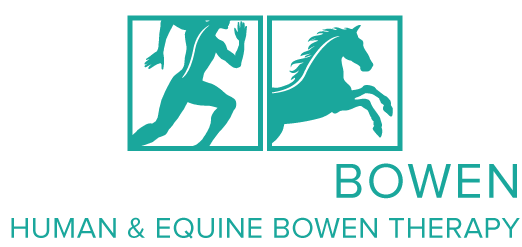Anyone who suffer's from Migraines will know that they are no ordinary headache, and can be debilitating. In today's post I have included a study by London based Bowen Therapist Nikke Ariff into the efficacy of Bowen Therapy for migraines.
Nikke Ariff is a Bowen therapist who, in 2002 carried out a research program with The Migraine Action Association to test the efficacy of the Bowen Technique on Migraine sufferers.
The research was carried out over a six week period and each participant received three Bowen treatments. The participants had all been suffering Migraines for at least 10 years, some for over 30.
Selection of candidates: The Volunteer Group
No parameters were set before the research program to attract a certain ‘profile’ of migraine sufferer. This was deliberate to ensure that the Volunteer Group was random but united by the fact that they were willing to try something new in the treatment of their migraine condition.
From the number of applicants for the program, the final migraine volunteers incorporated the following factors: ·
diagnosed as a migraine sufferer by a GP or hospital specialist ·
women were well represented at different stages of their menstrual life, i.e., regular periods; pre-menopausal; menopausal with/without hormone therapy; post-menopausal; hysterectomy. ·
as far as was ascertainable, the migraine condition was their main health complaint ·
that the migraine volunteer did not have known food intolerances that were being ingested on a daily basis ·
that the migraine volunteer could be successfully paired to a conveniently located Bowen Therapist.
There were a total of 105 migraine volunteers at the outset. Of this group, 42 took part in the study. The rest of the volunteers were not able to participate due to the presence of an additional complicated medical condition or because there was no Bowen therapist available in their area.
Of the 42 who began it, 39 completed the research program. The three not completing the programme did not meet the completion requirements due to a) an alteration of medication by their GP during the course of the program, b) failure to return a completed Final Questionnaire and c) withdrawal from the program due to a healing crisis.
The 39 migraine volunteers consisted of 37 women and 2 men. 13 of them had been suffering from migraines for one to fifteen years; 17 of them had been having migraines for sixteen to thirty years and 9 had had migraines for over thirty years. The causes, according to The City of London Migraine Clinic, can range from hormonal imbalances, exercise, food sensitivities, allergies, missing a meal, a change in sleeping pattern and many other triggers, in isolation or in combination. The migraine pattern for each individual is unique, as are their warning signs, levels of stress, emotional make-up and combination of trigger factors.
The volunteers recorded any changes in their migraine patterns, according to frequency and severity, over a six-week period. This comprised a two-week treatment period during which the volunteer received three Bowen treatments in the first two weeks of the program (i.e. Day 1, Day 7 & Day 14), followed by a four-week observational period. The migraine volunteer kept a Migraine Diary throughout the 6-week period, recording any migraine attack experienced during the Research Period.
The Results:
Of the 39 participants:
7 registered no change in their migraine condition
11 experienced a decrease in frequency of attacks
9 experienced a decrease in severity of their migraine
11 experienced a decrease in severity and frequency of attacks
1 participant experienced an increase in frequency
In all, 31 participants experienced a positive result, representing 79.5% of participants – a very impressive response rate showing significant improvement. At the end of the program, 36 of the 39 volunteers said they would recommend Bowen as a treatment to a friend or colleague.
Ann Turner, Director of the Migraine Action Association writes, “The results from the Bowen Technique National Migraine Research Programme are very encouraging. It confirms that this gentle, non-invasive, holistic therapy can help a wide range of migraine sufferers. The results confirm the findings of the pilot study and the fact that several different therapists were involved illustrates that it is the Bowen Technique which is effective not just one skilled or gifted practitioner.”
As a holistic therapy, The Bowen Technique treats the individual as an integrated biodynamic system as opposed to treating an isolated ailment. Migraines can be triggered by any one or a combination of factors ranging from hormonal, sleeping patterns, head & neck pain, exercise, travel, lack of food, allergies, stress levels of the individual etc., etc. These factors are so varied, that a holistic therapy like Bowen must be considered as a valid option for the treatment of the migraine condition.
Nikke says of the outcomes: “I am very pleased and not at all surprised at the success rate documented by The Bowen Technique National Migraine Research Program. I trust that more people will be encouraged to approach complementary therapies with an open mind for the maintenance of their health and well being.”
If you would like to try Bowen Technique for helping with Migraines or any other health issues please go to www.bowenassociation.co.uk to find a registered therapist close to you.
For further reading about this study please visit www.bowenmigraineresearch.co.uk
Image courtesy of bowenmigraineresearch.co.uk

